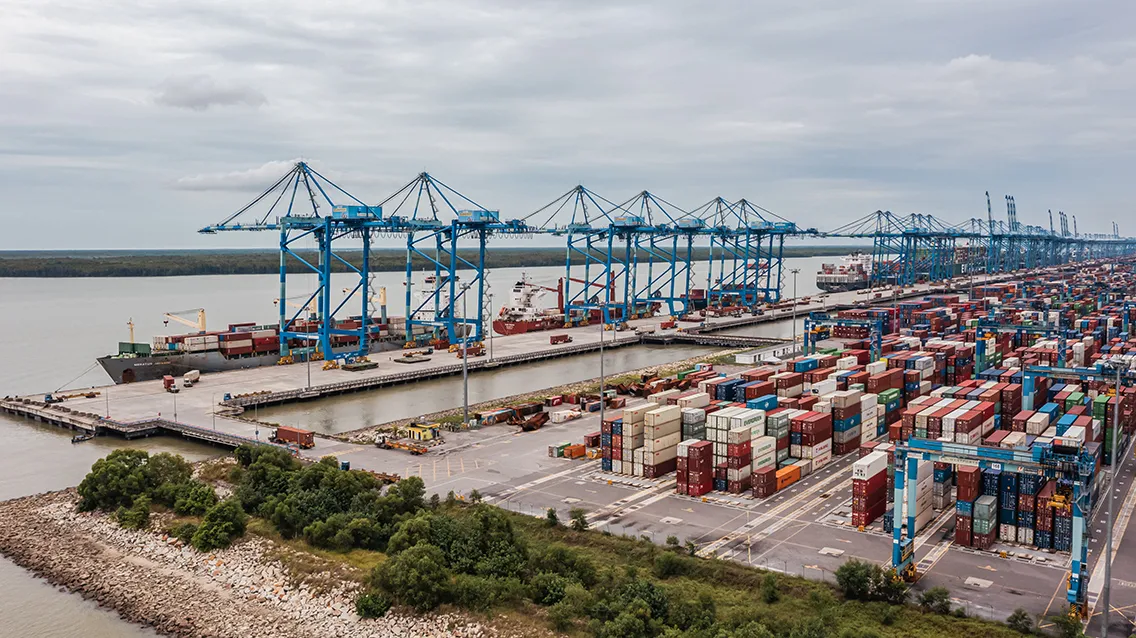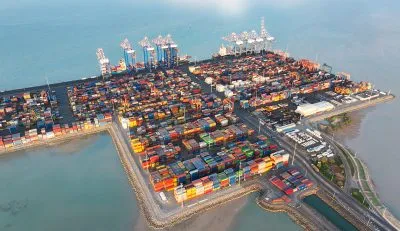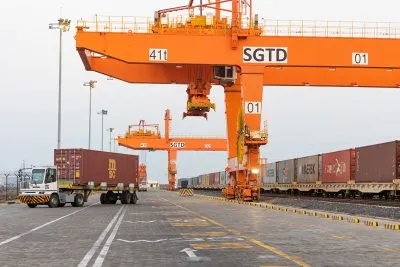As Southeast Asia cements its role as a global economic powerhouse, the region’s investors are increasingly looking beyond traditional markets to secure long-term growth. Enter Djibouti – the tiny but strategically vital nation in the Horn of Africa that offers Southeast Asia, and Malaysia in particular, a unique opportunity to bridge continents, tap into Africa’s rising consumer class, and redefine the future of South-South cooperation.
For Southeast Asian nations like Malaysia, this is a mirror of their own success stories. Just as Malaysia’s Port Klang and Singapore’s maritime dominance transformed Southeast Asia into a global trade nexus, Djibouti’s ports and free trade zones are poised to catalyse Africa’s economic integration.
The parallels are striking. Djibouti’s Doraleh Multipurpose Port and the Djibouti International Free Trade Zone (DIFTZ) –Africa’s largest – offer tax holidays, duty-free imports, and streamlined logistics. For Malaysian firms, this infrastructure is a springboard to serve Ethiopia, Africa’s second-most populous nation with a $150bn economy growing at 6-8% annually. With 95% of Ethiopia’s trade flowing through Djibouti, the opportunities are vast: from cold-chain logistics for perishables to light manufacturing in DIFTZ.
Southeast Asia’s expertise aligns seamlessly with Djibouti’s untapped potential. Consider three high-impact sectors:
Renewables and green industrialisation: Djibouti aims to achieve 100% renewable energy by 2035, powered by geothermal, solar, and wind resources. At Lake Assal, a volcanic rift offers over 1,000 MW of geothermal potential – enough to power industries and export surplus energy to Ethiopia.
Malaysian green tech leaders like Samaiden Group, Sunway, Cypark, Gentari and Tenaga Nasional could partner here, replicating Malaysia’s success in tropical climate solar solutions.
Imagine a future where Malaysian-backed geothermal plants power Djiboutian refineries producing sustainable palm oil for African and Middle Eastern markets – turning energy and food security challenges into competitive advantages.
Halal industry leadership: As the global halal industry surges toward a projected $5 trillion by 2030, Malaysia’s leadership in Islamic finance and halal certification finds a natural partner in Djibouti.
With a 95% Muslim population and proximity to the Middle East, Djibouti is an ideal hub for Malaysian halal exporters to process, certify, and distribute goods to Africa’s 650 million Muslims. The Islamic Development Bank could anchor this collaboration, structuring sukuk bonds to fund halal industrial parks in DIFTZ.
Ports and logistics innovation: Malaysia’s world-class port operators – Westports and MMC Corporation—have honed their skills in the congested Malacca Strait. In Djibouti, they can optimise Africa’s trade gateway, deploying AI-driven cargo systems and blockchain platforms to streamline customs. Such innovations would not only serve Ethiopia but also position Djibouti as a transhipment hub for the African Continental Free Trade Area (AfCFTA), a $3.4 trillion market spanning 54 nations. Critics will cite Djibouti’s challenges: a population of just 1.1m, water scarcity, and reliance on Ethiopian demand. Yet these are not dead ends—they are invitations to innovate.
Malaysian agro-tech firms can pioneer solar-powered desalination and closed-loop water recycling to support palm oil refining, drawing on lessons from arid nations like the UAE.
Djibouti’s true market is not its citizens but the 1.3bn Africans reachable via AfCFTA. By refining raw materials from Ethiopia (coffee, sesame) and Southeast Asia (palm oil, electronics) in DIFTZ, Malaysian firms can add value before re-exporting globally.
Djibouti’s debt-to-GDP ratio (70%+) demands caution, but Malaysia can leverage multilateral frameworks like the Asian Infrastructure Investment Bank (AIIB) to co-fund projects, sharing risks and rewards.
For Malaysia and Southeast Asia, Djibouti is more than an investment destination: it’s a strategic imperative. As global trade pivots toward Africa, Djibouti offers a gateway to the world’s youngest, fastest-growing continent; a laboratory for sustainable infrastructure and green industrialisation and a bridge between Southeast Asia’s dynamism and Africa’s aspirations.
The time to act is now. By 2050, Africa will host a quarter of humanity. Those who shape its infrastructure, energy, and trade ecosystems today will reap the rewards tomorrow.
For Malaysia, the call from Djibouti is clear: Cross the Indian Ocean, and build the future where continents converge.
Want to continue reading? Subscribe today.
You've read all your free articles for this month! Subscribe now to enjoy full access to our content.
Digital Monthly
£8.00 / month
Receive full unlimited access to our articles, opinions, podcasts and more.
Digital Yearly
£70.00 / year
Our best value offer - save £26 and gain access to all of our digital content for an entire year!

 Sign in with Google
Sign in with Google 



